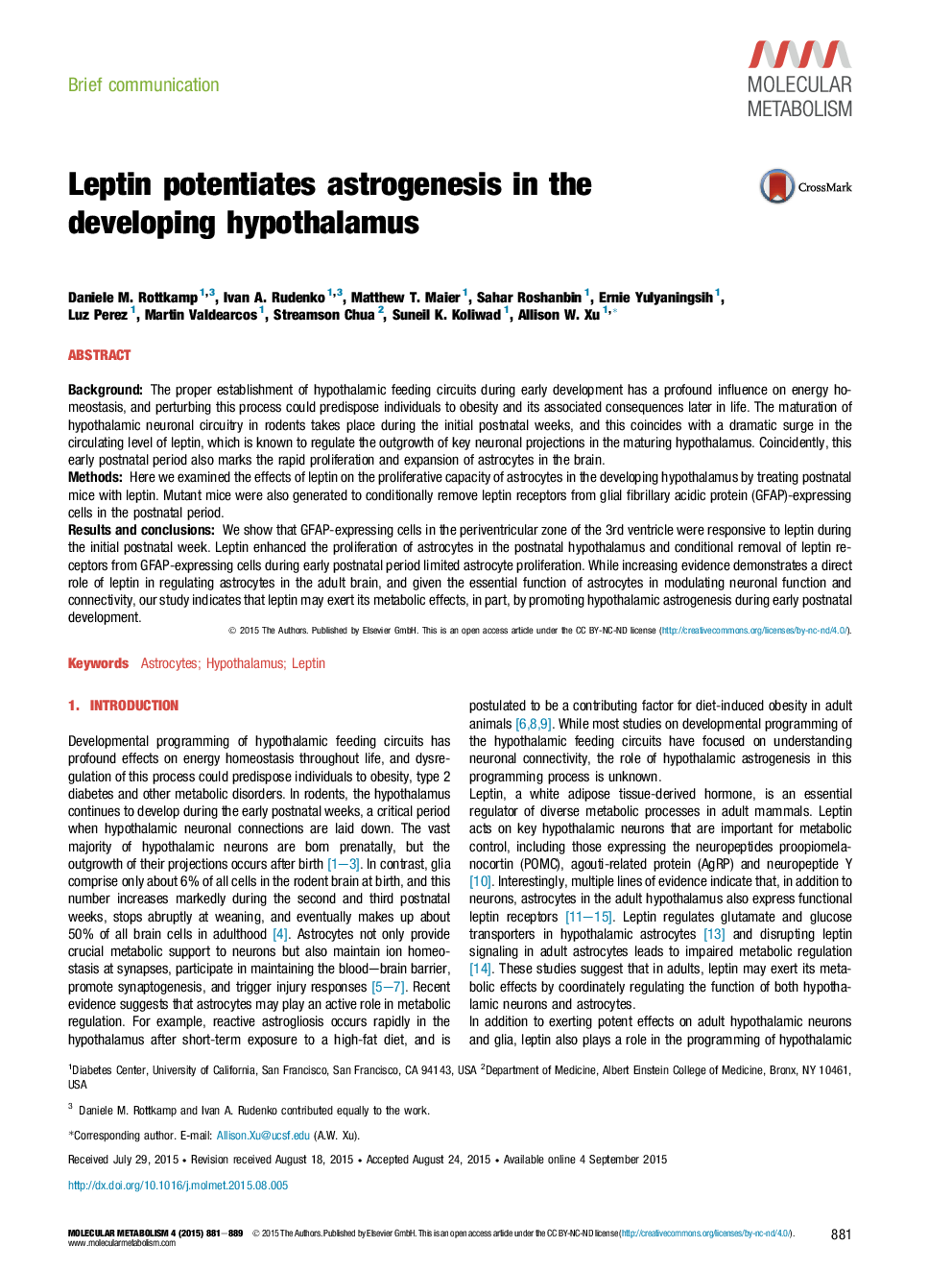| Article ID | Journal | Published Year | Pages | File Type |
|---|---|---|---|---|
| 3001354 | Molecular Metabolism | 2015 | 9 Pages |
•GFAP-expressing cells in the periventricular zone of 3rd ventricle are leptin-responsive during the initial postnatal week.•Leptin enhances the proliferation of astrocytes in the postnatal hypothalamus.•Conditional removal of leptin receptors in GFAP-expressing cells in early postnatal period reduces astrocyte proliferation.
BackgroundThe proper establishment of hypothalamic feeding circuits during early development has a profound influence on energy homeostasis, and perturbing this process could predispose individuals to obesity and its associated consequences later in life. The maturation of hypothalamic neuronal circuitry in rodents takes place during the initial postnatal weeks, and this coincides with a dramatic surge in the circulating level of leptin, which is known to regulate the outgrowth of key neuronal projections in the maturing hypothalamus. Coincidently, this early postnatal period also marks the rapid proliferation and expansion of astrocytes in the brain.MethodsHere we examined the effects of leptin on the proliferative capacity of astrocytes in the developing hypothalamus by treating postnatal mice with leptin. Mutant mice were also generated to conditionally remove leptin receptors from glial fibrillary acidic protein (GFAP)-expressing cells in the postnatal period.Results and conclusionsWe show that GFAP-expressing cells in the periventricular zone of the 3rd ventricle were responsive to leptin during the initial postnatal week. Leptin enhanced the proliferation of astrocytes in the postnatal hypothalamus and conditional removal of leptin receptors from GFAP-expressing cells during early postnatal period limited astrocyte proliferation. While increasing evidence demonstrates a direct role of leptin in regulating astrocytes in the adult brain, and given the essential function of astrocytes in modulating neuronal function and connectivity, our study indicates that leptin may exert its metabolic effects, in part, by promoting hypothalamic astrogenesis during early postnatal development.
